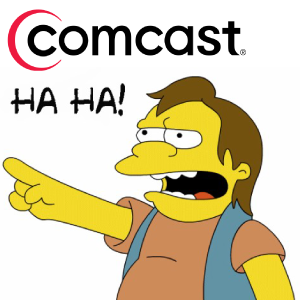
To summarize the proposed piece of legislation, SOPA gives both the U.S. government and copyright holders the authority to seek court orders against websites associated with infringing, pirating and/or counterfeiting intellectual property. If it becomes law, it could drastically change the way the Internet operates. For example, if a website is accused of containing copyright-infringing content (like a song, picture, video clip etc.), the site could be blocked by ISPs (like Comcast), de-indexed from search engines and even prevented from doing business online with services like PayPal.
[aditude-amp id="flyingcarpet" targeting='{"env":"staging","page_type":"article","post_id":375982,"post_type":"story","post_chan":"none","tags":null,"ai":false,"category":"none","all_categories":"business,media,","session":"A"}']The DNSSEC technology Comcast has implemented across its network is intended to add an extra layer of security to websites by checking for a special DNS signature to prove that the site is actually what it claims to be, according to a TechDirt report.
The humor in all of this is that Comcast is a big supporter of SOPA. But now it’s not only made its network incompatible with SOPA, it’s also undercut the need for SOPA somewhat by putting in place technology that helps legitimize the identity of websites to improve accountability and security.
AI Weekly
The must-read newsletter for AI and Big Data industry written by Khari Johnson, Kyle Wiggers, and Seth Colaner.
Included with VentureBeat Insider and VentureBeat VIP memberships.
I’m sure this will be brought up in detail when web security experts and tech business leaders testify about SOPA and PIPA to a congressional committee next week.
For more information about the proposed legislation, check out VentureBeat’s ongoing SOPA coverage.
VentureBeat's mission is to be a digital town square for technical decision-makers to gain knowledge about transformative enterprise technology and transact. Learn More